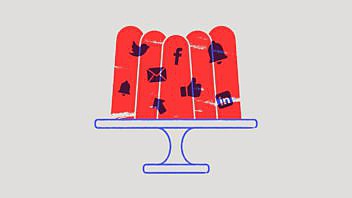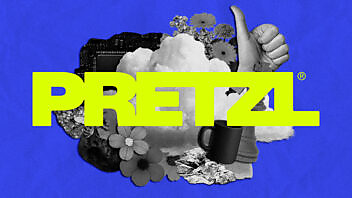Read most B2B marketing strategies and you’d think the world is a pretty stable and predictable place.
That there are more knowns in the market than there are unknowns.
That change comes in nice little steps and the Gods of Disruption send WhatsApp alerts at least one quarter before storming in to upset our applecarts.
The thing is, that’s not true of any B2B market I’ve ever worked in.
B2B markets—especially tech markets—are boiling cauldrons of change.
- New upstarts pop up out of nowhere, burning VC money and shitting out stock options.
- Traditional leaders make panic moves to show Dad can still dance. (Um, never could).
- Spicy customers constantly raise their already outrageous expectations. (Brats).
- New technologies (well, mostly AI) make the old ones look like Microsoft Outlook.
- New regulations completely change the way everyone gets around them.*
In short (and in bold): There are always way more unknowns than knowns in every B2B market.
And most of the so-called ‘knowns’ are really just jellified assumptions with little bits of bias and chunks of hunch suspended in them. (Like my Aunt Judy’s holiday Jell-O-Mold™ only edible.) (Soz, Jude, had to be said. Just bring Cheetos.)
Faking certainty
Given this chronic fuzziness, why are so many B2B marketing strategies so darn sure of themselves?
Why do they read like a recipe the author has followed a hundred times—with familiar ingredients measured out in exact quantities (“Add 1Tbsp Social Media (organic) and 1/2tsp of Creativity to 19 kilos of Paid Media…”).
Why do they always sound like those YouTube physics demos (replacing the word ‘energy’ with the word ‘budget’)?
Maybe it’s because capital-S Strategy is written by Strategic People with Strategic Job Titles like SVP of Strategic Strategy, Planning and More Strategy, EMEA.
Or because we imagine that our grumpy Stakeholders expect certainty from us.
Or that we think the people executing on our strategies need certainty to do their jobs.
Whatever the reasons, Strategies of Certainty don’t tend to fare well when they come into contact with Markets of Mayhem. (Ooh. Tweet that for me, will you?)
But what can you do about it? Isn’t this just the price of being Strategic these days? Don’t Strategic People have to write Solid & Sound Strategies? Do you want us to just wing it out there every day, Mr. Snowflake?
Of course we still need strategy.
We just need a different kind of strategy.
Introducing The Learning Strategy
A Learning Strategy is one that:
- Identifies learning as a primary goal right up there with the other goals.
- Specifies how learning will be captured instead of assuming it will somehow be absorbed.
- Surfaces critical assumptions instead of pretending they’re known facts—then recommends actions that will test those assumptions.
- Builds experiments into the program and ringfences the experimental budget to protect it from the comfort-zone playbook.
- Revisits itself regularly to check back in on those assumptions and suggest course corrections.
These simple-sounding changes actually change everything.
Because, with a Learning Strategy, the whole team is now committed to listening harder and getting better every day—instead of simply executing on its quarterly instructions.
While a Strategy of Certainty will only suggest tactics with a high likelihood of success, a Learning Strategy also embraces tactics that everyone knows may not work. Tactics that may not achieve the marketing goals but have a great chance of slam-dunking that learning goal.
Of course, a Learning Strategy can only work if the learning is actively, hungrily harvested, captured, stored and shared. If the lessons learned are activated in the next round.
When that happens, the Learning Strategy kicks off a virtuous vortex. The whole team just keeps getting better; understanding the market more clearly; figuring out what really resonates with buyers; and, ultimately, selling more shit.
Bonus Benefit: writing and running a Learning Strategy is way more fun than marching through a traditional (semi-delusional) marketing plan.
Turns out, it’s not just okay to admit you don’t know everything, it’s absolutely essential.
*I stole that line from a wonderful New Yorker cartoon by Peter C. Vey.

Enjoyed this article?
Take part in the discussion








Comments
Lionel MSource October 14th, 2021
As usual, amazingly original thinking on this, expressed with clarity.
Yes, I tell my clients everything they’re doing or trying, is a science experiment….they’re doing it to find out if it was a good idea to do it. And then, run like crazy, with what worked.
For me, one of the worst pieces of Marketing propaganda, that made overly broad claims with exaggerated certainty, was ‘Inbound Marketing’…Yes, its true, but only half true…
And yes, I’m a Hubspot customer!
Doug Kessler October 20th, 2021
Thanks. Here’s to more science experiments!
Lionel Binnie MSource October 14th, 2021
Also, to reinforce the point, just watched an interview with the head of Accenture, Julie Sweet, she said 30% of what business leaders (for marketers probably its even more) need to know is different than even in 2017.. What we know to be true is changing pretty rapidly.
Doug Kessler October 20th, 2021
Love that. I’m not sure of many things but I’m damn sure that, for today’s market leaders, what got you to the top won’t keep you at the top.